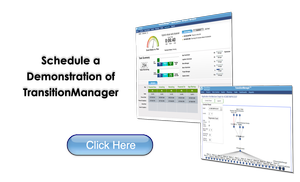Business needs change. Some changes occur to keep pace with innovation. Some changes are necessary to ensure you are compliant with regulations like the GDPR. These changes and the associated challenges are acute in highly regulated industries such as financial services, healthcare and life sciences. To sustain operations and remain resilient it’s important to have flexibility for data migration to, from and across cloud storage locations. Regular data management helps the IT team be more agile and able to respond quickly to data requests from the business.
To prepare – or (yikes!) to get in compliance with new regulations like the GDPR, here are some general insights gleaned from clients who are often under regulatory scrutiny:
Changes impacting your IT environment are inevitable. Whether they are planned or unplanned, your team needs speed, agility and a comprehensive view of the data environments affected. Whether it’s a single down server, several servers lost to a ransomware attack, or an entire data center impacted by weather, the disaster recovery response needs to be efficient.
If you can, automate collection and categorization of data so you have:
- Complete visibility of your IT environment – applications, servers, etc.
- Deep understanding of all assets, including their dependencies
- Continuous and automatic updates
- The ability to group assets and dependencies for recovery with custom tags
- Dynamic “runbooks” to sequence and prioritize those assets that should move together
- A reporting or a collaboration platform so that key folks can stay informed and collaborate if changes need to be made
Understanding your environment is critical. But it’s also vital to have the ability to automate, orchestrate and implement best practices that may prevent outages or disruptions when you need to make the required changes.
Bottom line, IT must have a steady hand on the wheel at all times – no matter how fast the business is changing or what new regulation threatens to take your organization off course. IT needs to know what data the business has, where it lives and what needs to happen with it.

